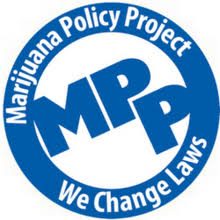Wondering what kind of steps are being taken to change the attitudes surrounding marijuana? Statistics from 2018 showed that a person was arrested every 48 seconds for possessing marijuana. Of those arrests, 87 percent were for possession only.
If you haven’t heard about it yet, there are some major changes taking place in Georgia. Just weeks ago, in April of 2019, Governor Brian Kemp signed HB 324. Known as Georgia’s Hope Act, this Act aims to allow people safe access to prescribed medicinal cannabis oil.
If you have been following along, you may have seen that a man was recently sentenced to an eight years in prison. His crime? The possession of medical marijuana, which he had legally obtained in another state. Medical marijuana is currently legal in 32 states.
With bills like HB 324 being put into action, people will no longer need to choose between the freedom to treat their health as they see fit and being law-abiding citizens. These changes may seem small, but it’s taken a lot of hard work for them to happen. Each small change helps encourage an overall change in societal attitudes toward marijuana.
Spearheading the Change in Marijuana Laws
Organizations like the Marijuana Policy Project (MPP) look to move beyond the traditional approach to marijuana prohibition. Which, if we’re being honest, hasn’t really addressed the concerns people do have about marijuana. In fact, the prohibition of marijuana has served to encourage the growth and development of a thriving black market.
The Marijuana Policy Project attempts to address people’s perceptions of marijuana. In the process, MPP works toward the legislative changes that it thinks appropriate, meaning making cannabis legal in more places. The organisation also lobbies for legislation to give patients with serious illnesses access to medical marijuana. The group strives to increase public awareness and encourages the support of non-punitive marijuana policies. One of the ways this is achieved is through changes made at the legislative level.
At the same time, MPP is also bringing awareness to voters by creating and sponsoring ballot initiative campaigns and supporting politicians who align with the group’s values. This helps create change at the state level, which, in turn, makes the possibility of nationwide changes possible and may engender support from within Congress.
There have been many positives in recent years when it comes to the acceptance of both the medical and recreational use of marijuana. The Marijuana Policy Project has looked at ways to structure a new system which would hinge on sensible regulation. While there still is a lot of work left to be done, we owe a lot to what has already been accomplished to the MPP.
The History of Marijuana Prohibition
In 1937, when marijuana was first federally prohibited, few people even knew what this plant was. The choice to move forward with the illegalization of marijuana was directly related to the Mexican Revolution. After the war, immigrants were making their way into the country — and bringing their customs with them. Using marijuana for recreational and medicinal purposes was one such custom.
Criminalizing marijuana became a way to identify, punish, and control the immigrating population. And craft an anti-immigration discourse that persists to this day.
The History (and Future) of the Marijuana Policy Project
The Marijuana Policy Project was founded in 1995. Since that time, they’ve made it a priority to serve as public advocates for marijuana legalization. The organization has its work cut out for it: since that time, there have been more than 15 million arrests related to marijuana.
Mass media campaigns have helped create awareness and make the issues relatable to even those who don’t use cannabis. When the MPP was first founded, medical marijuana was illegal in every state. Things have certainly changed since then, although it’s unclear how much MPP had to do with those changes.
MPP shows no signs of stopping their push to see marijuana sensibly regulated. Their recent campaigns include The Coalition to Regulate Marijuana Like Alcohol. This proposition passed in November of 2018 in Michigan. Similar campaigns are taking place across the country, including in Connecticut, Delaware, and Maryland, to name just a few.


